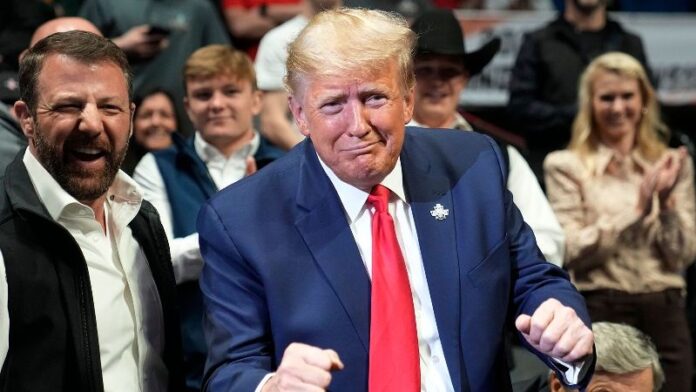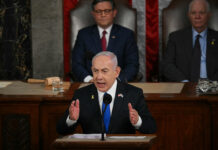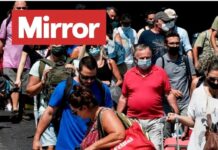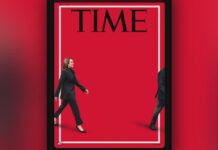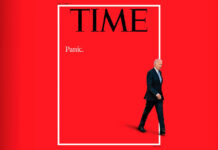He made the remarks in an interview with Tucker Carlson, his first time on the program since the release of private text messages showed the Fox News anchor’s repugnance for the former president. / By Michael C. Bender / New York Times
Former President Donald J. Trump said Tuesday that he would continue campaigning for the White House even if convicted of a crime.
In his first national media interview since pleading not guilty last week to 34 felony charges related to a hush-money scandal during his 2016 White House bid, Mr. Trump complimented the strongmen leaders of several other countries; attacked “sick, radical” Democrats; and indicated that not even a prison sentence would keep him from running for president.
“I’d never drop out, it’s not my thing,” Mr. Trump said when asked on Fox News about a potential conviction.
In addition to his criminal charges in New York, the former president is facing several other criminal investigations: One is related to his attempts to overturn election results in Georgia, another is into his efforts to hold on to power in Washington after losing re-election and a third is into his handling of classified documents at his home in South Florida.
The hourlong interview was also his first with the Fox News anchor Tucker Carlson since private text messages, revealed as part of a $1.6 billion defamation against the cable channel by Dominion Voting Systems, showed Mr. Carlson’s repugnance for the former president.
While Mr. Carlson referred to Mr. Trump as “a demonic force, a destroyer,” in one text message in early 2021 and added “I hate him” in another, on Tuesday he traveled to Mr. Trump’s Mar-a-Lago resort in South Florida for what Mr. Carlson described on his show as “a rare venture outside the studio for us.” The interview consumed his program.
“For a man caricatured as an extremist,” Mr. Carlson said about Mr. Trump at the start of the show, “we think you’ll find what he has to say moderate, sensible and wise.”
During the interview, most of which was spent on foreign policy, Mr. Trump said that Democratic leaders were a bigger threat to the nation than foreign dictators.
Mr. Trump referred to President Vladimir V. Putin of Russia as “very smart,” said that Saudi Arabia’s leaders were “great people” and called President Xi Jinping of China a “brilliant man.” He also said that “the biggest problem” for the United States wasn’t foreign actors but “these sick, radical people from within” the country.
The former president said that he was able to handle Russia and China from the White House, and described an interaction with Mr. Putin in which he told the Russian leader that he couldn’t invade Ukraine. Mr. Trump didn’t mention that he had been impeached for opening a pressure campaign on Ukraine, including an internal push to withhold military aid, to investigate his political rivals.
Speaking about his arraignment exactly one week earlier, Mr. Trump said he felt supported by members of the courthouse staff.
“It’s a tough, tough place and they were crying,” he said. “They were actually crying. They said, ‘I’m sorry.’”


